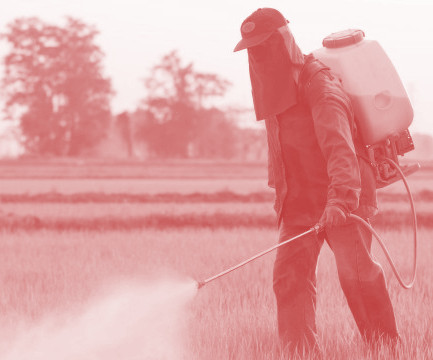Evidence lacking in Roundup case
 A class action lawsuit alleging that the weedkiller Roundup causes cancer has been dismissed.
A class action lawsuit alleging that the weedkiller Roundup causes cancer has been dismissed.
Justice Michael Lee of the Australian Federal Court has found that there was insufficient evidence to establish that Roundup's active ingredient, glyphosate, is carcinogenic and capable of causing non-Hodgkin lymphoma in humans.
The class action, initiated by Maurice Blackburn Lawyers, represented over 800 Australian plaintiffs diagnosed with non-Hodgkin lymphoma.
The plaintiffs alleged that their cancer was caused by exposure to glyphosate.
However, Justice Lee determined that the evidence presented did not conclusively demonstrate that glyphosate caused cancer.
Justice Lee's judgement was focused on the question of general causation rather than the specific claims of the lead applicant, Kelvin McNickle, or the other class members.
McNickle, now 41, developed non-Hodgkin lymphoma after two decades of using glyphosate in his family's vegetation management business in Queensland.
Despite his and others' personal experiences, the court found the scientific evidence insufficient to link glyphosate to cancer definitively.
The judge highlighted the mixed views within the scientific community regarding glyphosate's potential health risks.
“One thing is plain - the science is not all one way,” he said.
Lee concluded that none of the studies presented during the trial provided “clear and compelling” evidence of glyphosate's carcinogenicity.
Bayer, which acquired Roundup's manufacturer Monsanto in 2018, has consistently maintained that glyphosate-based herbicides are safe when used as directed.
The company has cited hundreds of studies conducted over decades that support this position.
Following the ruling, Bayer's crop science director, Warren Inwood, described the decision as a victory for Australian farmers, stating that these products “underpin sustainable farming systems and support farmers in doing what they do best - putting food on the tables of Australians every day”.
Despite the court's ruling, the controversy over glyphosate's safety is far from settled.
In 2015, the International Agency for Research on Cancer (IARC) classified glyphosate as “probably carcinogenic to humans”, based on limited evidence of cancer in people and sufficient evidence in animals.
Conversely, the Australian Pesticides and Veterinary Medicines Authority (APVMA) reviewed the chemical and concluded in 2017 that glyphosate was not carcinogenic, based on its analysis of available scientific research.
The European Commission recently extended the approval of glyphosate for another decade, although not all member states supported the decision.
Justice Lee acknowledged the need for ongoing research to resolve the scientific uncertainties surrounding glyphosate.
He pointed out that further studies could provide a more definitive answer to whether glyphosate poses a cancer risk.
The APVMA has stated that it will continue to monitor the scientific developments and take appropriate actions if new evidence emerges indicating a risk to public health or the environment.







 Print
Print